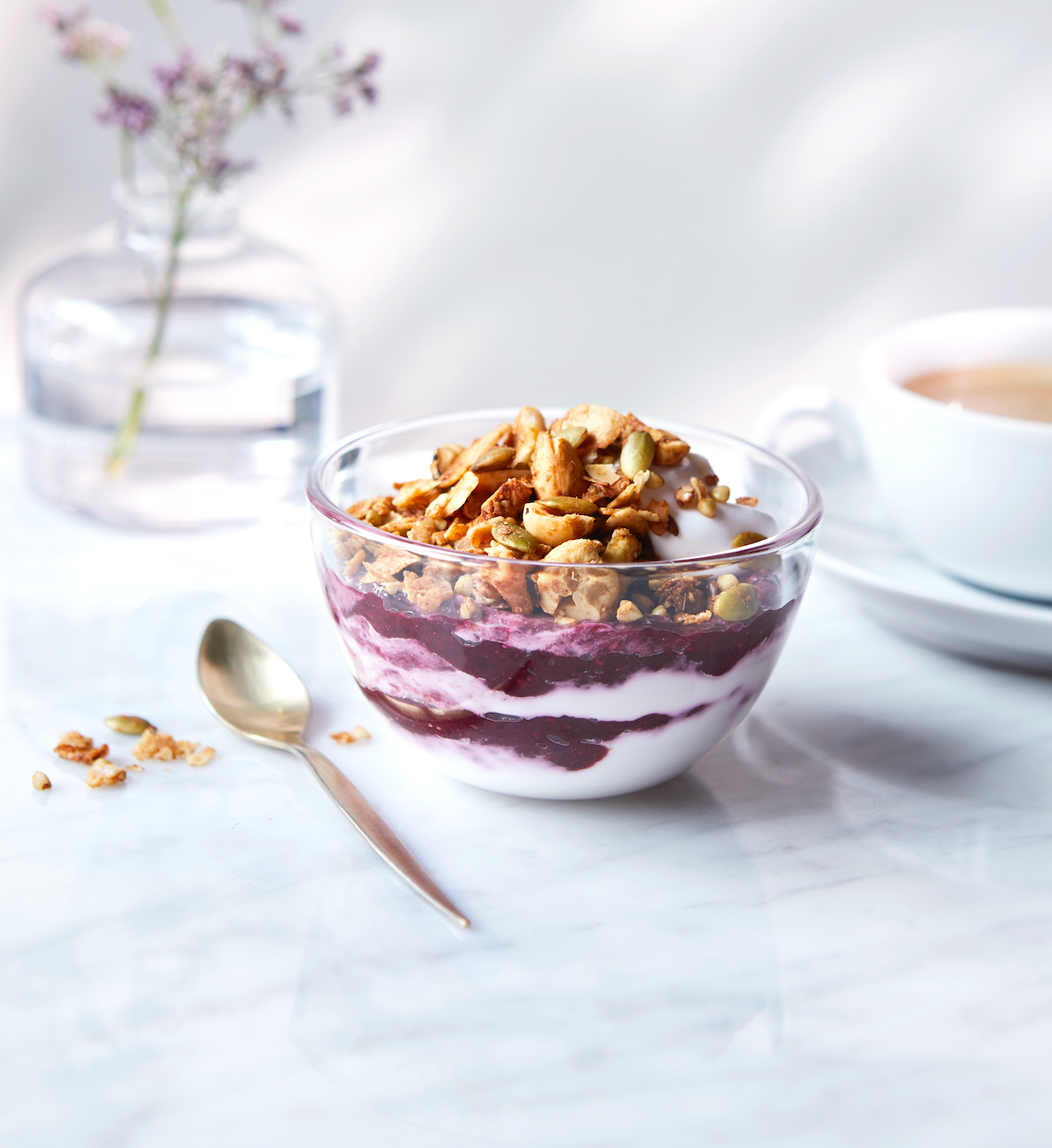Article: Can foods improve our immune system? A Nutritionist’s take on immune-boosting foods

Can foods improve our immune system? A Nutritionist’s take on immune-boosting foods
Written by Stefanie Emery and Georgine Leung.
Ginger, Turmeric, Oranges, Apples—eating these will leave us all disease-free, right?
Food is one of those hot topics which dominate the media landscape. The interest in
‘immuno-boosting foods’ has surged multifold since the rapid spread of COVID-19 worldwide, and we are constantly fed information with regards to how nutrition can contribute to strengthening our immunity.
Rather than relying on foods recommended by your favourite food blogger on Instagram to enhance your immunity, here’s the low-down from a certified nutritionist.
What does the immune system actually do?
Your immune system is your body’s main defence system against disease and infection. It involves many different cells and works tirelessly to make sure our body is healthy.
Although we may not be able to add our immune system to a payroll, we can most definitely pay it back, and even work together with it, through alternative ways.
Can eating certain foods boost one’s immune system?
If only it was that simple! If drinking a glass of orange juice a day could make us super-healers, we’d be drinking gallons of it, and the chaos that is COVID-19 would most likely not be as widespread. Improving one’s immune health consists of many different factors, however food is most definitely one of them!
Having a healthy, varied diet is important to make sure our immune system operates normally. Our immune system is only stimulated when the body senses an infection, which then sends signals to the rest of the body, resulting in feeling run-down. Therefore, to say that we can take a certain supplement to ‘boost’ our immunity is an inaccurate statement.
However, eating a balanced diet provides essential nutrients which work in different ways to maintain the normal function of the immune system. This is a key message that we aim to get across at Kurami, and through our nutritionist-approved meal paths, we focus on assuring a variety of fresh fruit and vegetables are included in each meal. On average, we have more than 30 varieties of fruit, vegetables and herbs in just one-week of our meal paths.
What are some top nutrition tips for immunity?
Our nutritionist, Georgine Leung, states that “eating a balanced diet provide essential nutrients which work in different ways”. There is no sufficient evidence which shows supplementation can help to reduce the risk of a viral infection, but eating a wide variety of whole foods when working to maintain the normal function of the immune system, such as:
The minerals:
- Iron, found in red meat, beans, pulses, nuts and seeds, fish, quinoa
- Selenium, found in Brazil and cashew nuts and meat
- Zinc, found in meat, poultry, cheese, shellfish, nuts and seeds
- The vitamins:
- Vitamin A, found in orange-coloured fruit and vegetables, such as carrots, sweet potato butternut squash and dark green leafy vegetables
- Certain B vitamins
- Vitamin B6, found in poultry, fish, fortified breakfast cereals, soya beans and sesame seeds
- Vitamin B12, found in meat, fish, shellfish, dairy products and fortified breakfast cereals
- Folate, found in green leafy vegetables, pulses, oranges, nuts and seeds, cheese and fortified breakfast cereal
- Vitamin C, found in citrus fruits, berries, kiwifruit, green vegetables, sweet peppers and tomatoes
- Vitamin D, found in oily fish, eggs, fortified breakfast cereals and fortified spreads and dairy products. Note that the most important source of vitamin D is from sufficient exposure to sunlight during UK summer months, but dietary sources of vitamin D can help contribute as well. It has also been suggested that during the winter months, everyone should take a vitamin D supplement because levels are so low in the UK.
Yes, drink your orange juice and eat your avocados, but make sure you’re getting a sufficient amount of sleep, movement, and mindfulness in there too.
Overall, what should we do further to optimise our immune system?
There are many other ways to make sure our immune system works effectively that contributes to a ‘healthy lifestyle’. This includes managing a good sleep schedule, being active for at least 30 minutes a day, keeping alcohol intake at bay and not smoking. Of course taking care of our mental health is particularly important too.


